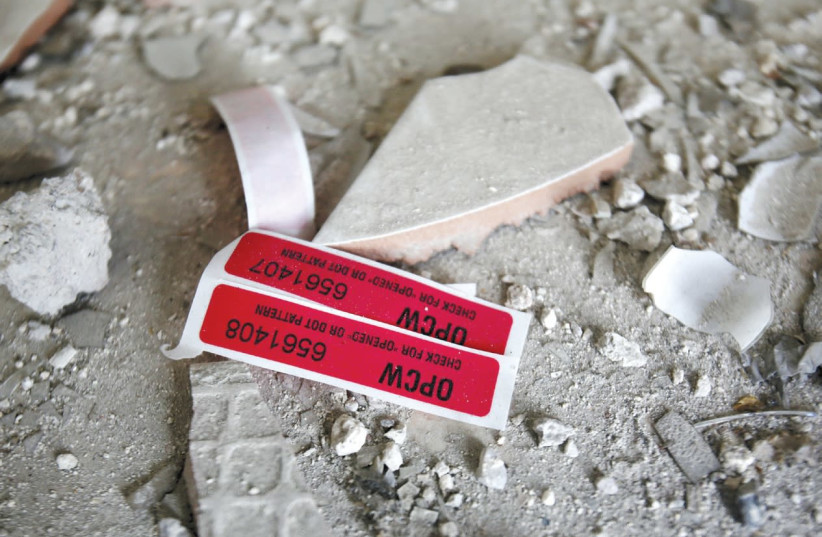Ukraine’s permanent representative to the Organisation for the Prohibition of Chemical Weapons on Tuesday issued a shocking letter to the OPCW (Organization for the Prohibition of Chemical Weapons), warning that Russian forces in occupied Donetsk might use chemical weapons as a pretext to advance their war machinery in Ukraine.
“According to the intelligence information from the temporarily occupied Donetsk, the occupiers are handing out gas masks to local militants and the Russian military. There is a possibility of provocation, such as blowing up industrial tanks with chemicals,“ wrote Maksym Kononenko, Ukraine's ambassador to the OPCW.
Kononenko added that “Russia would then most likely accuse the Ukrainian military of this sabotage against the civilian population. We declare that, unlike the Russian occupiers, Ukraine does not use such methods. We do not have any chemical weapons and—unlike Russia—we would never use them.“
He continued that “Ukraine is a strong supporter of the Chemical Weapons Convention..., which is widely recognized as the first multilateral instrument, banning the entire class of weapons of mass destruction under strict and efficient international control and compliance mechanisms.“

The BBC reported on Wednesday that Russian forces could use non-conventional weapons and that “most likely refers to chemical weapons although the term also covers tactical (small-scale) nuclear weapons, biological weapons and dirty bombs.”
One Western official told the BBC that "We've got good reason to be concerned.”
The news channel of the United Kingdom's ministry of defense tweeted on Wednesday that "The Russian MoD has confirmed the use of the TOS-1A weapon system in Ukraine. The TOS-1A uses thermobaric rockets, creating incendiary and blast effects. Watch the video below for more information about this weapon and its devastating impact."
According to the BBC, Western officials said worries about Russian using chemical weapons could be exploited for "setting the scene" for a false flag" operation claim that the Ukrainians used them. The Western official's views mirror the concerns sent to the OPCW by Kononenko.
The Russian embassy in Britain tweeted that "MFA spox #Zakharova: Recently found documents show that components of biological weapons were made in #Ukraine's laboratories, with funding from #US@DeptofDefense, in direct proximity to #Russia."
The regime of Russian President Vladimir Putin has been aligned with the Syrian regime in the civil war unfolding since 2011 in the Syrian Arab Republic. Russia has played a key role in crushing opponents of Syrian President Bashar Assad's regime, including aerial warfare targeting hospitals. The death toll is over 500,000 people and Assad's regime used chemical weapons numerous times to murder Syrians.
Putin has been accused of poisoning opponents of his regime with nerve agents.
